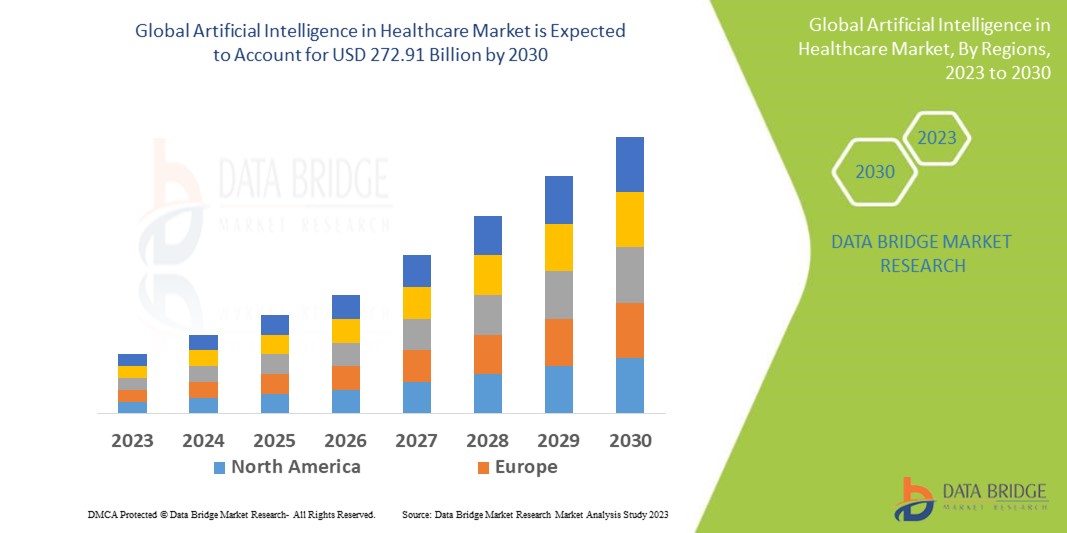Introduction
Artificial intelligence (AI) is transforming the healthcare industry, bringing unprecedented advancements in diagnostics, treatment planning, patient care, and operational efficiency. AI technologies, including machine learning, natural language processing, and computer vision, are being integrated into healthcare systems to improve patient outcomes, reduce costs, and streamline operations. From predictive analytics and personalized medicine to robotic surgeries and virtual health assistants, AI is revolutionizing healthcare delivery.
The Evolution
The evolution of AI in healthcare has been a journey marked by significant milestones. Early AI applications in healthcare can be traced back to the 1970s with the development of MYCIN, an expert system designed to identify bacterial infections and recommend antibiotics. However, the limited computational power and data availability of that era hindered the widespread adoption of AI technologies.
The advent of big data, increased computational capabilities, and advancements in algorithms have propelled AI into mainstream healthcare. The digitization of health records, the proliferation of wearable devices, and the development of sophisticated imaging technologies have generated vast amounts of data. This data serves as the foundation for training AI models to perform complex tasks such as disease diagnosis, treatment recommendations, and patient monitoring.
The past decade has witnessed a surge in AI research and development in healthcare. Tech giants, startups, and healthcare institutions are collaborating to develop AI-driven solutions that enhance clinical decision-making, improve patient outcomes, and optimize healthcare delivery. Regulatory bodies are also recognizing the potential of AI, leading to increased approvals of AI-based medical devices and software.
Market Trends and Factors Driving Growth
Several key trends and factors are driving the growth of the AI in healthcare market. One of the primary drivers is the increasing demand for personalized medicine. AI algorithms can analyze genetic, clinical, and lifestyle data to tailor treatments to individual patients, improving the efficacy of therapies and reducing adverse effects.
The growing prevalence of chronic diseases such as diabetes, cancer, and cardiovascular diseases is another significant factor. AI technologies can facilitate early diagnosis and intervention, potentially reducing the burden of these diseases on healthcare systems. For instance, AI-powered imaging tools can detect abnormalities in medical images with high accuracy, enabling early detection of conditions like cancer.
The need for operational efficiency in healthcare is also driving AI adoption. AI can automate administrative tasks such as scheduling, billing, and patient triage, freeing up healthcare professionals to focus on patient care. Predictive analytics can optimize resource allocation, reducing wait times and improving patient flow in hospitals.
The COVID-19 pandemic has accelerated the adoption of AI in healthcare. AI has been instrumental in pandemic response efforts, including virus detection, contact tracing, and vaccine development. The pandemic has highlighted the importance of AI in managing public health crises and improving healthcare resilience.
Market Scope and Market Size
The AI in healthcare market encompasses a wide range of applications, including diagnostics, treatment planning, patient management, and healthcare administration. Diagnostic applications involve the use of AI to analyze medical images, laboratory results, and patient data to identify diseases and conditions. Treatment planning applications use AI to recommend personalized treatment protocols based on patient-specific data.
Patient management applications include AI-powered virtual health assistants, telemedicine platforms, and remote monitoring systems that enhance patient engagement and adherence to treatment plans. AI is also being used in healthcare administration to streamline processes, improve efficiency, and reduce costs.
In terms of market size, the global AI in healthcare market was valued at approximately USD 6.6 billion in 2020 and is projected to reach USD 45.2 billion by 2027, growing at a compound annual growth rate (CAGR) of around 31.3%. This growth is driven by the increasing adoption of AI technologies, the rising demand for personalized medicine, and the need for improved operational efficiency in healthcare.
Country Level Analysis
The AI in healthcare market exhibits significant regional variation, with different countries showing varying levels of adoption and growth. North America, particularly the United States, holds a substantial share of the market. The region’s advanced healthcare infrastructure, strong presence of tech companies, and favorable regulatory environment drive the adoption of AI in healthcare. The U.S. government’s support for AI research and development, coupled with significant investments from private sector companies, further propels market growth.
Europe is another significant market, with countries like the United Kingdom, Germany, and France leading the way. The region’s well-established healthcare systems, robust research and development capabilities, and growing focus on digital health initiatives drive the demand for AI in healthcare. The European Union’s regulatory framework for AI in healthcare ensures the safety and efficacy of AI-driven solutions, fostering market expansion.
The Asia-Pacific region is witnessing rapid growth in the AI in healthcare market, driven by countries such as China, Japan, and India. The region’s large population, increasing healthcare expenditure, and rising prevalence of chronic diseases contribute to the demand for AI-driven healthcare solutions. China, in particular, is a major player, with significant investments in AI research and development and a strong focus on integrating AI into healthcare systems.
Latin America and the Middle East & Africa regions are emerging markets for AI in healthcare. Countries like Brazil, Saudi Arabia, and South Africa are experiencing increasing adoption of AI technologies in healthcare due to improving economic conditions and growing awareness of digital health solutions. Government initiatives and investments in healthcare infrastructure further support market growth in these regions.
Conclusion
The AI in healthcare market is poised for significant growth in the coming years, driven by increasing demand for personalized medicine, the need for operational efficiency, and the growing prevalence of chronic diseases. Technological advancements, regulatory support, and the impact of the COVID-19 pandemic are key factors propelling this growth. As AI continues to evolve and integrate into healthcare systems, it offers promising opportunities for innovation, investment, and improved patient outcomes. The transformative potential of AI in healthcare is immense, and its continued development will play a crucial role in shaping the future of medicine.
Get More Detail: https://www.databridgemarketresearch.com/reports/global-artificial-intelligence-in-healthcare-market
4o




